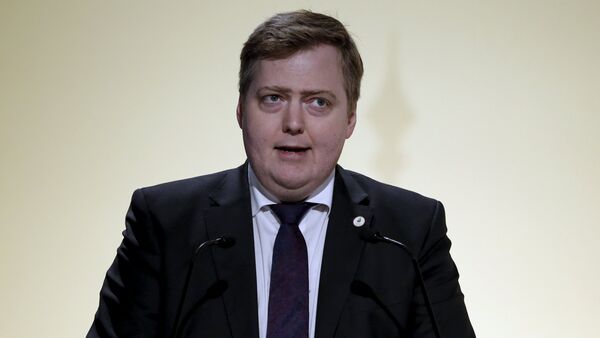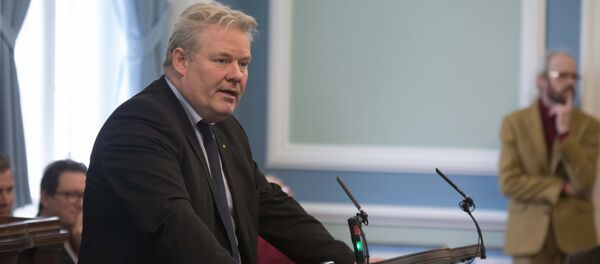According to the information presented by ICIJ, Gunnlaugsson and his wife Anna Sigurlaug Palsdottir owned a British Virgin Islands company, Wintris Inc, which held about $4 million in three Icelandic bonds. The couple bought the company in 2007 to invest the profits from the sale of Palsdottir’s family business, a Toyota dealership. When Gunnlaugsson entered the parliament two years later, he did not disclose his stake in this offshore business. In 2009, Gunnlaugsson sold his share in the company to his wife for $1.
In 2015, Gunnlaugsson’s government finally budged on the payments to the foreign creditors of Iceland’s banks, using the remaining assets of the institutions. Wintris, now belonging completely to Gunnlagsson’s wife, was among those creditors.
What made Panama revelations worse for Gunnlaugsson was what made his political career in the first place, namely, his rise to prominence as a spokesman for the political movement In Defence of Iceland that called on the country to deny paying out foreign creditors who suffered in the collapse of the Icesave bank.
The 2008 banking crash was the largest in Iceland’s history, with the national currency losing almost a third of its value and gross domestic product sharply declining. It also exposed the previously above-reproach Icelandic establishment as corrupt and reckless.
In 2013, the 38-year old Gunnlaugsson, who became the youngest ever prime minister of Iceland, was riding the wave of the anger against the rich elites who pushed the country to the brink. In 2016, when the story of Gunnlaugsson’s offshore dealings broke out, the memory of the crisis was still too fresh for too many people, and even the prime minister’s relatively successful economic policy, which helped Iceland begin restoring financial stability, did not save him.
In March, Gunnlaugsson refused to answer questions about his shell company in an interview with the Swedish TV journalist. The prime minister stormed out of the room.
On April 4, more than 20,000 people, which amounts to about 7 percent of the country’s population, gathered in the center of Reykjavik to demand the prime minister’s resignation.
Gunnlaugsson called for the dissolution of the parliament and a snap election, but then-President of Iceland Olafur Ragnar Grimsson did not grant this request.
Gunnlaugsson had little choice but to leave office. The premiership went to Minister for Fisheries and Agriculture Sigurdur Ingi Johannsson, who did not manage to hold on to it for long.
Johannsson resigned on October 30, the next day after the parliamentary elections, held six months early due to the Panama Papers controversy.
Gunnlaugsson was not the only top official in Iceland that the Panama Papers journalists reached out to for comment. Bjarni Benediktsson, the country’s finance minister, was asked about his 33 percent share in a shell registered in the Seychelles. Iceland’s Minister of the Interior Olof Nordal was linked to an offshore company in Panama, which Nordal said was her husband’s and, most importantly, never used. Hrolfur Olvisson, a senior member of the Progressive Party, was also tied to offshore companies, which he claimed to be long inactive and completely above water.



